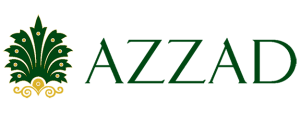 At Azzad, we believe that an investment has moral as well as financial implications.
At Azzad, we believe that an investment has moral as well as financial implications.
“Do no mischief on the earth after it has been set in order; but call on Him with fear and longing (in your hearts) for the Mercy of Allah is (always) near to those who good.” (Surah Al-A’raf, Ayah 56)
To invest in a company that engages in Islamically impermissible activities is harmful to the investor because s/he profits from haram activities through dividend or interest income. It is harmful to society as a whole because what we buy is an expression of our ethics and moral worldview. To support unjust, economically exploitative enterprises helps to perpetuate, either in practice or in spirit, actions that are corrosive to the soul and society. As such, we do not cut corners when it comes to Shariah compliance, embracing both the letter and the spirit of the law.
Azzad’s adherence to internationally accepted guidelines for Islamic investing is unrivaled.
The Accounting and Auditing Organization for Islamic Financial Institutions (AAOIFI) serves as the backbone of our Shariah compliance process. This means rigorous screening that involves data feeds on company business activities from two internationally known vendors, Thomson Reuters and MSCI. The latter is a recent addition, intended to help us identify line of business that can “slip through the cracks” of other commercially available screening tools.
Using our proprietary software, we screen out companies that derive significant revenue (more than 5%) from areas that violate our Ethical and Shari’ah Investment Guidelines, which in turn are based on AAOIFI standards. These include usury/interest, alcohol, tobacco, pornography, pork, gambling, and weapons of mass destruction. We consider a company’s debt ratio as well as its practices with respect to environmental responsibility, labor standards, and human rights. With an eye toward social justice, we screen out securities on a discretionary basis that violate human rights, labor, environment, and anti-corruption norms or that are involved in hydraulic fracturing (fracking), for-profit prisons, and other socially and environmentally destructive industries.
Azzad is the only U.S. investment advisor that fully implements AAOIFI guidelines.
This was verified in June 2015 when the U.K.-based Islamic Finance Advisory and Assurance Services (IFAAS) completed an external Shariah audit and verification of Azzad Asset Management, making it the first Islamic financial services firm in the U.S. to obtain such a verification. The IFAAS auditors are AAOIFI-certified Shariah advisors and auditors. They confirmed that Azzad’s screening protocols and administrative procedures comply with AAOIFI standards, and then tested the company’s investment transactions in 2014 to assess their compliance with the investment guidelines. They also examined how Azzad calculates purification and zakah totals for its clients. The IFAAS auditors found no glaring omissions or errors in Azzad’s processes and procedures and issued the firm a satisfactory overall rating. In 2016, IFAAS issued an opinion letter stating that Azzad had satisfactorily met AAOIFI standards in its practices. That process has continued, with Azzad receiving a satisfactory rating each year we have been audited.
For those companies that an investor owns, there are rights and responsibilities with respect to that ownership.
“Whoever recommends and helps a good cause becomes a partner therein; and whoever recommends and helps an evil cause shares in its burden; and Allah has power over all things.” (Surah An-Nisa, Ayah 85)
We believe that one of your duties as an investor is to be an active owner of your assets, enjoining good and forbidding evil where possible. At Azzad, we are proud to offer shareholder advocacy services to our clients at no additional charge.
Shareholder advocacy refers to actions taken by shareholders to ask the companies whose stock they own to take an action or change behavior for the public good. One common way to do this is to propose shareholder resolutions to the company’s management to be brought to a vote at the company’s next annual general meeting. An individual or institution may file a shareholder resolution as long as they hold at least $2,000 worth of a company’s stock continuously for one year before filing and continue to hold at least $2,000 worth of stock through the date of the company’s annual general meeting.
Azzad engages in shareholder advocacy on behalf of our clients by voting proxies, filing resolutions, sending investor letters, and engaging in dialogue with companies that we own for the benefit of clients. Also, as a member of US SIF, the Forum for Sustainable and Responsible Investment, as well as the Interfaith Center on Corporate Responsibility, Azzad regularly partners with like-minded socially responsible firms to advocate for more equitable corporate policies in the areas of labor rights and the environment.
Shareholder advocacy is a critical part of putting the faith into practice.
One of our most successful engagements has been with Chevron Corporation, a company that has been tied to human rights violations because of its cooperation with the government of Myanmar. That nation has committed what many outside observers have labeled crimes against humanity because of its persecution of the Rohingya Muslim minority in Rakhine State. Chevron is the largest U.S. company in Myanmar; it owns a large oil and gas concession off the coast of Rakhine State, and because of its partnership with the state-owned oil and gas company, it has been accused of helping to fund the oppression of the Rohingya. Seeing that Chevron was not doing enough to pressure Myanmar to live up to its international obligations, Azzad began a years-long dialogue with the company, in addition to filing a resolution asking the company to examine a policy of no longer doing business with countries complicit in genocide and/or crimes against humanity.
Partly as a result of that dialogue, Chevron has made enormous strides toward living up to the international standards on business and human rights, include engaging with political leaders in the U.S. and Myanmar, undertaking social investment reviews on the ground in Rakhine State, making donations to the International Committee of the Red Cross (specifically for Myanmar and Bangladesh), training business and government officials on human rights, and creating the role of an ESG engagement director. This is a real-life example of how being an active shareholder can make a difference in the real world.



